It began with a trembling in my legs. I remember being on the sofa, watching TV and noticing that my legs were shaking. They were still trembling when I went to bed. I couldn’t make them stop.
I was about eight weeks pregnant and my body was doing all sorts of strange things. But this felt different. I hadn’t read about trembling legs in any of the books that my friends had given me, hadn’t seen it listed as a symptom of early pregnancy on any of the websites I had been clicking onto in the last four weeks.
My husband called a locum, who told me I was anxious and gave me a Valium. I went to sleep but woke at 2am and tossed and turned for the rest of the morning, my legs doing a cha-cha without my permission. This went on for days. I couldn’t still myself. I grew increasingly anxious and oscillated between thinking that the tremble in my legs was caused by the pregnancy and worrying that it was caused by something that could potentially harm the pregnancy.
It is hard to write about this time, even eight years later. I can see myself from this current vantage point of wellness and it hurts to stare squarely at my past, vulnerable self. I want to wrap her up in blankets and reassure her that eventually everything will be okay. I didn’t know this then, that everything would be okay. Those days were shadow days. All I knew at the time was that I was not well and that I did not know how to make myself well.
I was about eight weeks pregnant and my body was doing all sorts of strange things. But this felt different
The day before I found out I was pregnant, I’d been out from 8am to 11pm, at work, then at a photoshoot for an anthology I’d co-edited, Just Between Us, which was a few months from being released. I was exhausted, a deep kind of tiredness that I’d never experienced before, and it took me almost a week to realise that my period was late.
I remember I felt my world shift after I saw the second pink line materialise. It was as if I was looking down a path made of stone, and suddenly, with a great grumble of rock, the path moved and I was staring down a road I’d never seen before. Prior to this I’d known where the road was heading – into work, a career, writing. Now I was facing a different direction and the road petered into darkness.
After the shock had worn off and my husband Rob and I had a chance to talk and think and imagine together, I was excited. Kids had always been part of our ‘one day’ plan, back when we were living in Perth and started dating, and I have always been a clucky woman, born in two cultures – Mauritian and Italian – that prize and revere children. Parenthood had always been on the horizon, but we’d been so busy building our careers for the last ten years that the horizon was a faraway place. Now, suddenly, it was here.
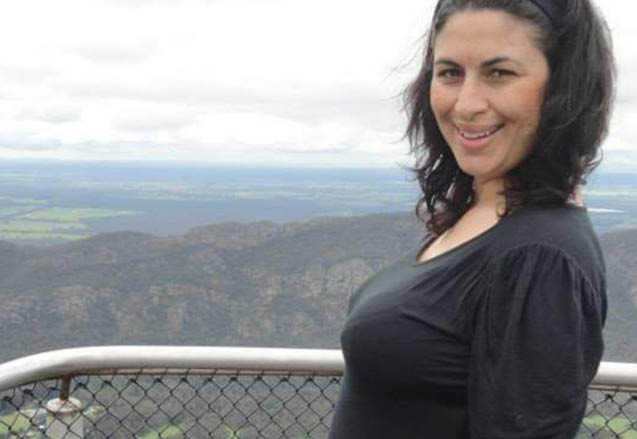

A couple of days later Rob and I visited a doctor in our area that specialised in obstetrics and she started me on the battery of blood tests to confirm the pregnancy and to check my health.
In our appointment I’d told her that I’d been taking Endep for years to treat chronic pain resulting from an injury in my lower back. I’d had operations on my back in the past and had done a pain management course, but the Endep took the edge off the back pain I still experienced daily. Rob and I had read that Endep was not a drug that should be taken during pregnancy, so I’d stopped taking it the day before our appointment. That was fine, she said. We went on our way.
The sleeplessness kicked in just after the nausea.
None of the pregnancy websites I visited really got into the details of morning sickness. None of them warned me that brushing my teeth would make me gag, that drinking water would make me feel sicker than I have ever felt and retch so hard that I would wet myself. Instead they exhorted me to keep active, to avoid dehydration, to eat a bit more (but not too much) and to rest when I could.
My GP, let’s call her Clara, was herself pregnant, and beaming with it. She made conciliatory noises and prescribed me Maxalon, ginger tablets, vitamin B6, none of which worked. I spent hours in horrible corners of the internet, in unregulated comments sections filled with anguished women who could not sleep and could not stop throwing up. I spent my sleepless night-time hours looking for a cure to nausea, to insomnia and to the panic I was beginning to feel.
These parts of the net were filled with women who did not know what to do, who felt like they were doing their pregnancy all wrong. Their sense of failure was palpable and familiar. Every morning I vowed not to go back, but every evening, after meditation and nausea medication hadn’t made a dent, I found myself back there.
I spent hours in horrible corners of the internet, in unregulated comments sections filled with anguished women who could not sleep
It is hard to separate the experience of early pregnancy from the experience of increased anxiety and trembling legs. Even now, I don’t know how they influenced one another, though I would hazard a guess that if my anxiety had been properly managed, I wouldn’t have felt quite so ill.
By the time I was 10 weeks pregnant, my legs had been shaking for two solid weeks. In desperation I booked an appointment to see a GP a few days later. It was Clara’s day off, so I saw someone else at the clinic. I arrived wearing a tracksuit, my hair dishevelled. ‘I can’t sleep,’ I told this new doctor, ‘I can’t seem to function anymore. I need help.’
The GP asked me if I’d tried listing the colours of the rainbow in bed. I stared at her. I couldn’t believe that she couldn’t see the state that I was in. I told her that I didn’t know what was happening, or why it was happening, that the only thing I could think that had caused this anxiety was the pregnancy. I would have an abortion, I said, if that meant the trembling would go away. She told me there were meditation apps I could get on my phone. She reminded me about the rainbow. I left the clinic. I went home and rang the pregnancy hotline.
They advised me to go for a shower and take a walk. I love walking. I love going for long walks, love looking at people’s houses, the beautiful, the quirky and the ridiculous. So I had my shower and headed out. But rather than calm me down, the walk made me more and more agitated. I was walking faster and faster and could not slow down. I didn’t know what a panic attack was back then, but at that moment, I felt like I might be having one.
Rob was giving a presentation to the heads of his lab, so I didn’t call him. I called my friend Miriam who told me to go straight back to the clinic and that she would meet me there. I rang and told them I was coming in. I saw the same GP I’d seen that morning, the one who suggested rainbows, and she asked if we’d allow a more senior doctor to sit in on the appointment. I nodded vigorously. He came in and explained, to Miriam, rather than to me, that I should be hospitalised because I had expressed a desire to harm my unborn child.
Miriam was outraged. She argued that my consideration of an abortion was normal given the circumstances I was in. I sat there, small and ashamed, unable to speak for myself. Miriam led me out of the clinic. ‘You are never going back to that place again,’ she said. She called and made an appointment for me at her clinic the following week.
The GP asked me if I’d tried listing the colours of the rainbow in bed
The next day my cousin Sonia suggested that I might be going through a withdrawal to Endep. She’d seen something similar with a friend of hers. I’d managed to get back to see Clara that Friday, and Sonia came with Rob and me for our appointment. When Sonia told Clara her theory, Clara agreed that it made sense, that I had the symptoms of someone going through a drug withdrawal. She prescribed me selective serotonin reuptake inhibitors (SSRIs), commonly used to treat depression and anxiety. She warned that one of the possible side effects of the SSRIs was increased anxiety.
We were heading into a long weekend, so Clara told me that if my anxiety got worse, I should go to the hospital. The next day I went to my acupuncturist and she managed to still my legs for the evening. I felt optimistic. By Sunday, however, the trembling had returned and worsened. By Sunday night I was having suicidal thoughts and I could not stop seeing images of babies being hurt. Rob rang our local crisis assessment and treatment (CAT) team who said I needed to see a psychiatrist quickly, and the quickest way to do that was to go to Emergency at the Royal Melbourne Hospital. It was now around 1am. The psychiatric nurse who assessed me recommended I stay in the psychiatric ward for the night so that I could see a psychiatrist first thing the next morning.
I watched Rob walk out the double glass doors to go home alone. The doors sliding closed behind him made me realise that we now inhabited two different worlds. He was well, he was free to go home and go to sleep in our bed. I was not well and I had to stay behind, I had to be treated.
As I watched him walk away from me, down the hospital corridor, I felt a pang of envy followed by a terrible guilt about what I was inflicting on him. By this point I’d seen three different GPs – two of them experienced, one who specialised in obstetrics. None of these doctors had been able to figure out what was wrong with me. Only my cousin, who was not a medical practitioner, was able to pinpoint the cause of my restless legs.
Even now, I shudder to think what would have happened to me, and to my baby, if Sonia had not had this experience.
***
The psychiatric ward of the Royal Melbourne Hospital was grim and sad. I don’t want to sensationalise the place – people who find themselves in such places do not need to be further stigmatised. But it seems like the last place that vulnerable people should be sent, and yet, paradoxically, it is the only place we have for such vulnerable people.
On my first morning there I fainted, grazing my face and bruising my hips. The psychiatrist I saw told me that I should have been taking benzodiazepines with my SSRIs to counteract the side effect of increased anxiety. He prescribed me a Valium a day.
I spent another night in the psych ward and checked myself out the following day. I kept my appointment with Miriam’s doctor, Lila, for the following week. She spent an hour going over my case, and speaking to me, directly to me.
She told me that the mental health of the mother was the most important thing in any pregnancy, and I was shocked at her words and how easily she’d said them. At that point, all of my GP visits had been about minimising harm to the unborn child, never mind that I hadn’t yet had a scan to confirm whether or not the pregnancy was actually viable. Lila recommended a psychologist and a psychiatrist.
She told me that the mental health of the mother was the most important thing
I wouldn’t be able to get into a psychologist or a psychiatrist immediately, so she asked me to make weekly appointments to check in with her, which I gladly did. I asked her whether I could come off the SSRIs. I was worried about the effects they might have on the baby, and she told me that at that point, I should stay on them. That coming off them might be worse, and that I’d been through a trauma and taking them was important. But she also prescribed me tablets to help me sleep, and kept me going on the benzodiazepines for the next week or so.
Lila saved my life. She saved my daughter’s life. I’m certain of it. She was the first doctor to really see me, and to understand how far I now was from being myself. She was expert in her medical knowledge, thorough in her diagnosis and kind. And while I’m grateful to Lila, I’m also angry at all the other doctors I saw. The doctors who didn’t realise that I was going through a drug withdrawal. Doctors who prescribed me colours of the rainbow, who wanted to hospitalise me. A GP who didn’t do her due diligence in taking me off or putting me on medication. Whose only backup plan was to send me to Emergency, who must have known where that would lead.
I look back at this time and think how lucky I am that my daughter was able to cling on, grow and thrive inside a body that was being medically mistreated. How easily I could have lost this pregnancy and never met the kid who floods my heart with love, who has profoundly and beautifully changed my life. If I hadn’t had the support of Sonia or Miriam or Rob, things could have ended up far worse than they did for both my daughter and me. This is something that I’m not sure I can forgive. In fact, this is something that needs to be called out and discussed and changed.
***
One of the things that made my terrible pregnancy bearable was the idea that it was a singular experience. Surely what I had gone through was an aberration, a fluke. Surely other people were not, are not, treated like this.
But what I’ve found in writing about this subject is that I’m not so unusual. Many women experience trauma at the hands of the medical establishment. This is not something that we speak of very often.
It’s hard to look down the long barrel of time and wonder where exactly things tipped from a not-great first pregnancy into a disastrous one. Was it the first appointment, when the GP didn’t mention that I had to taper off Endep? The one after that, where my prescription was to think about the rainbow? Or the one after that, when the senior doctor at the practice accused me of wanting to hurt, in his words, ‘my unborn child’?
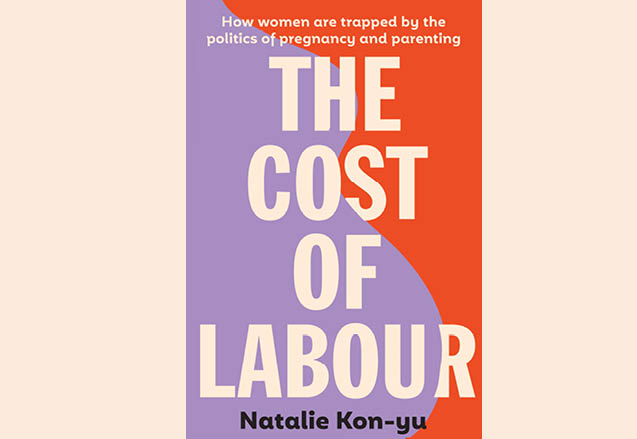

Looking back now I can see that, in each of these cases, I was considered to be a foetal container first, and a human second. The baby’s wellbeing – even before the first ultrasound confirming that there was, in fact, a viable pregnancy – came first.
And I wonder if my GPs had looked at me properly or had asked me any detailed questions about my health, there might not have been so big a gap between the person I used to be and the person I had become.
For months after my stay at the hospital I was depressed. I worked from home whenever I could and avoided social situations as they made me anxious. I suffered from suicidal ideation.
Suddenly, going to the supermarket by myself made me feel panicked. I stopped driving, and my world shrank to my living room, doctor’s surgeries and the houses of a few close friends. I felt awful about the fact that my baby would be born to such a useless mother, and I was convinced that she and Rob would be better off without me in their lives.
Looking back now I can see that, in each of these cases, I was considered to be a foetal container first, and a human second
Eventually, I got better. I started seeing the psychiatrist Lila recommended – a specialist in perinatal psychology – and I found that talking to her helped. Little by little I crawled out of the dark space I had been inhabiting and back into the world. I still had bad days and the odd panic attack.
I never got a respite from the sickness, though (thankfully I didn’t know then that I wouldn’t stop vomiting until after I had given birth). But I was sleeping better and the trembling had completely left my body. By the time I was about six months pregnant, I became delighted by the tiny baby clothes I was stockpiling and washing. I took pleasure in decorating the baby’s bedroom and in packing my suitcase for the hospital, sharing the space in there equally between my things and my baby’s things.
By the end of my pregnancy, I considered myself lucky – lucky that Miriam had taken me to the right doctor, lucky that I’d had a great psychiatrist (and lucky that I could afford to go to a psychiatrist), lucky that I’d had a boss who insisted I work from home whenever possible, lucky to have understanding colleagues, supportive friends and a great partner. Most of all, I felt lucky to have survived.
This is an edited extract from The Cost of Labour by Natalie Kon-yu (Affirm Press), out now




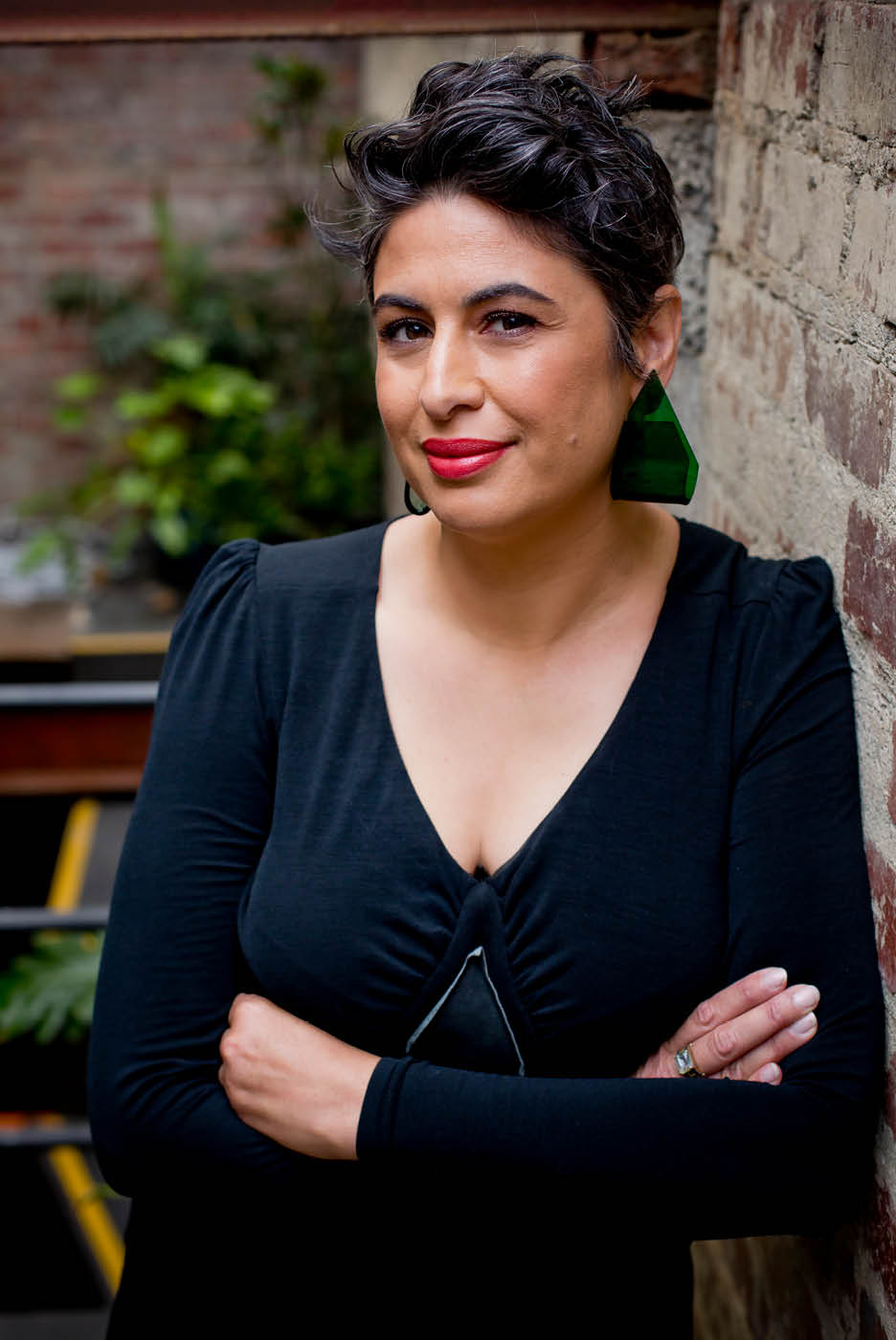
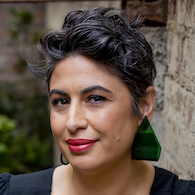


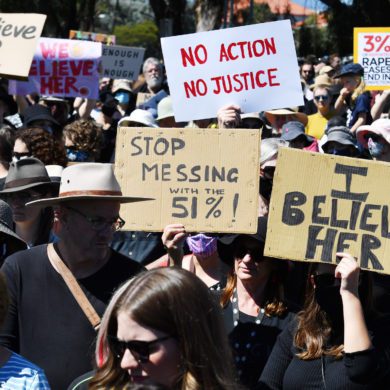

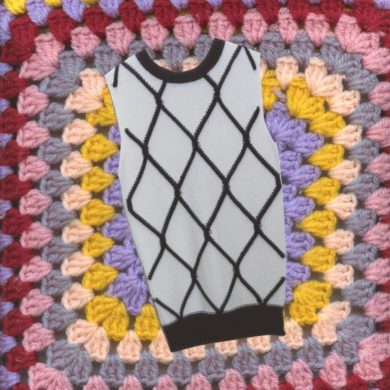



No Comments